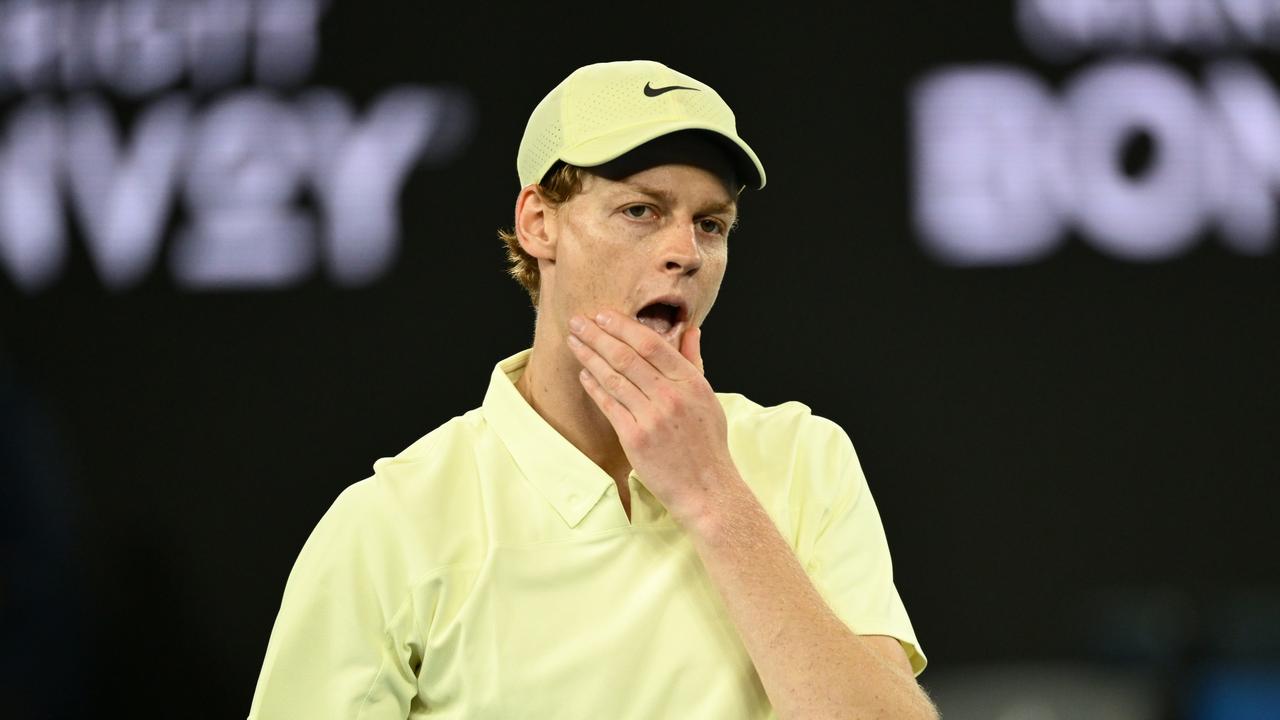Media bans, covid, booing: Is this how it ends for AO master Novak Djokovic?
When Novak Djokovic comes to Australia, there’s no shortage of drama that follows. But is this how it all ends for the master of Melbourne Park? SCOTT GULLAN with the analysis.
Aus Open
Don't miss out on the headlines from Aus Open. Followed categories will be added to My News.
THE pausing and turning around to look up into the stands was telling as was the smile when Novak Djokovic realised the last time he might ever walk off Rod Laver Arena was amid a mixture of cheers and boos.
Rather than put his head down and get off as quickly as possible after pulling the pin one set into the semi-final, something inside the 10-time Australian Open champion told him to soak up the moment more.
It had a one last goodbye feel about it.
And 15 minutes later when Djokovic faced the media, he admitted this could be it. He hoped it wasn’t given how much he loves the place but the reality was his body is letting him down more and more.
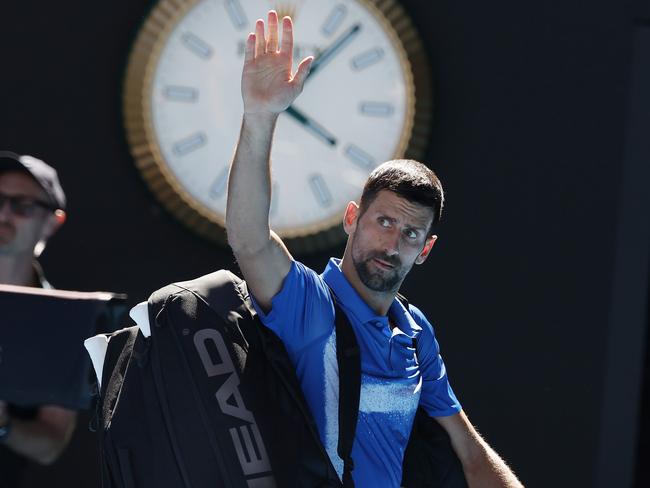
This time it was a twinge early in his quarter-final against Carlos Alcaraz which that night spurred him on to play some of his best tennis for 12 months to get the win.
But there was to be no miracle comeback this year, don’t forget he has twice managed mid-tournament injuries here and still won the title on both occasions.
Despite providing all these amazing memories over the past two decades at Melbourne Park, it’s still not clear cut whether Victorians love him.
The booing after his retirement Alexander Zverev was classless and unnecessary but it does raise the question about the legacy he may be leaving.
Does the fallout from the Covid debacle in 2022 when he was deported because he wasn’t vaccinated still linger?
This year’s tournament had sideshows going on everywhere again for Djokovic which would test the patience of some.
In the lead-up he’d done a magazine interview where he said he’d been poisoned while under hotel detention in Melbourne. Unfortunately, he refused to elaborate on those claims.
Then came the banning of host broadcaster Ch 9 and his criticism of host Tony Jones which put a bomb under the tournament and had Tennis Australia boss Craig Tiley scurrying around trying to mend bridges all over the place.
Djokovic wasn’t happy with some tongue-in-cheek comments Jones had used on the nightly news bullet as he revved up Serbian fans. He saw them as “insulting and offensive” comments and made a very public protest by snubbing a post-match interview with Jim Courier.
Then his penchant to play wounded raised its head after the Alcaraz match.
Djokovic has a long history of emphasising injuries during games only to suddenly – often after an injury time-out – resurrect himself and play amazing tennis.
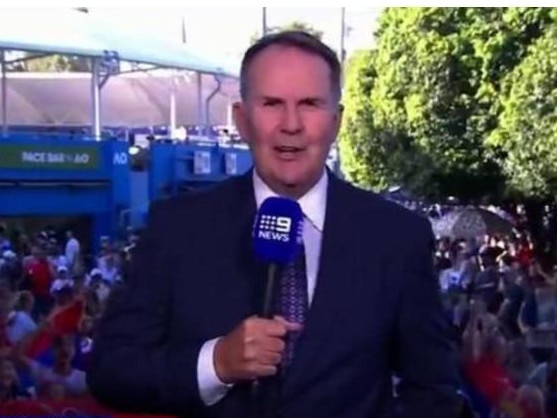
His opponents have grown tired of it and there was a suggestion Alcaraz even mocked a limp when the injury flared in the quarter-final.
Djokovic loves playing the villain, it’s part of the mental war games he plays and has clearly been crucial to his rise to being the greatest player the game has seen.
But does it make you popular? Hmmmm.
Last year was the first time since 2017 that Djokovic hadn’t won a grand slam with his only final appearance coming at Wimbledon where he was beaten by Alcaraz.
His appointment of Andy Murray as coach was seen as a last roll of the dice, a move to spark up the final stages of his extraordinary career.
Just how much gas he has got in the tank is something he didn’t know as he tried to compute what had happened against Zverev although there were more than a few hints that a proper farewell – not just from Australian – might not be too far away,
“The biggest enemy of a professional athlete is injuries, in the past I managed certain injuries and to some extent even helped me even play better and win the tournament,” Djokovic said.
“It wasn’t to be this time. When you are on the court, it’s adrenaline, it’s a lot of things that you are experiencing.
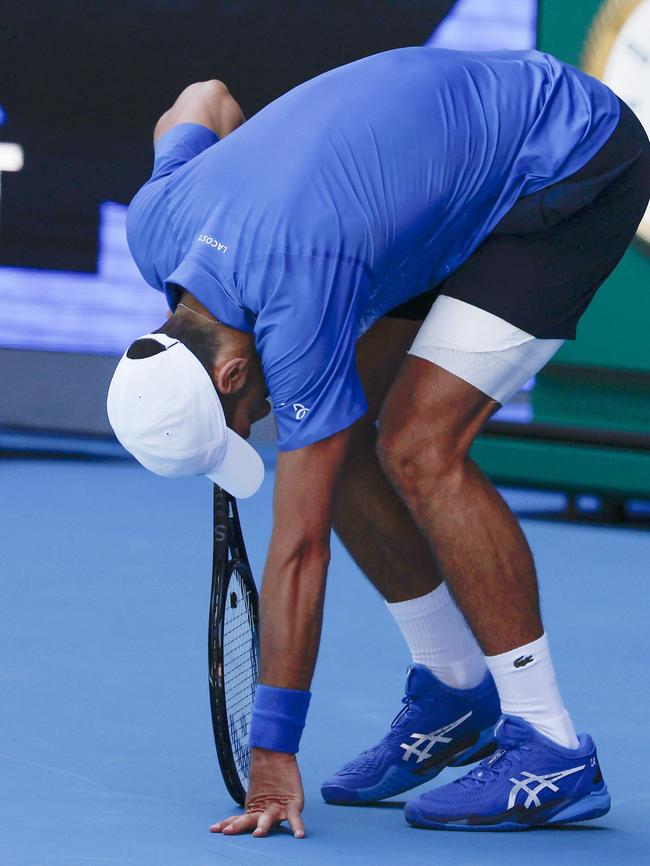
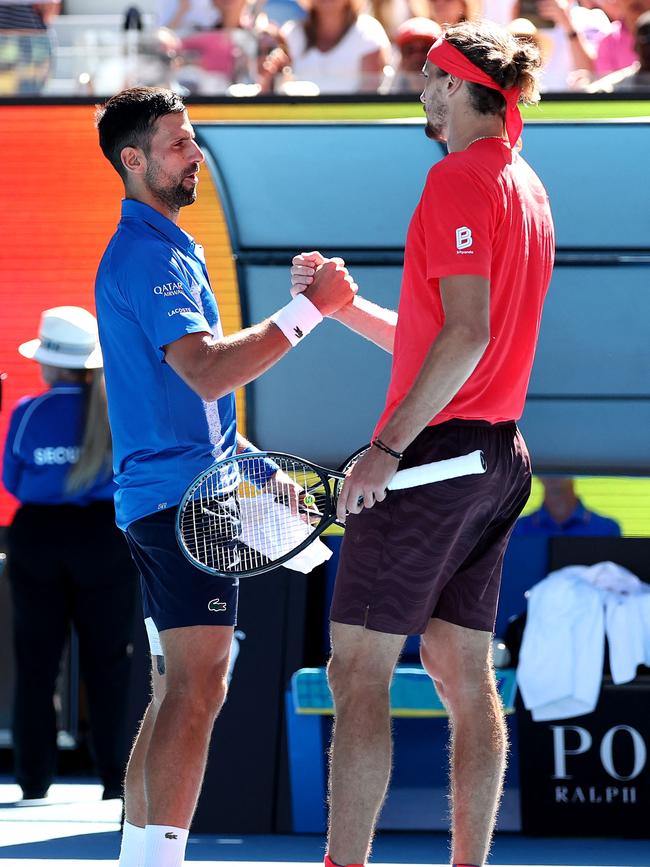
“Sometimes it works in your favour; sometimes it doesn’t. It also depends on the other player, how he’s managing those situations. That’s the beauty of one-on-one sport, you know, individual sport, is such that there is no replacement, there is no substitution.
“I could not go out now after the first set and somebody comes in for me and then I rest for an hour and maybe come back or maybe come back for the next match and my team wins. It doesn’t happen in our sport.
“If you in a way don’t show up and if something is wrong, you’re out. But that’s, again, the sport we are part of. I love it. I think it has given me the opportunity to be here. So there’s a lot to be grateful for and really proud of.”
No-one will ever repeat the Serbian superstar’s Australian Open record, that’s a fact but whether he will be adding to that in 12 months time, that’s a mystery.
And Novak Djokovic likes mysteries.
More Coverage
Originally published as Media bans, covid, booing: Is this how it ends for AO master Novak Djokovic?





